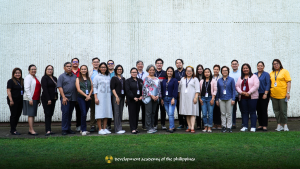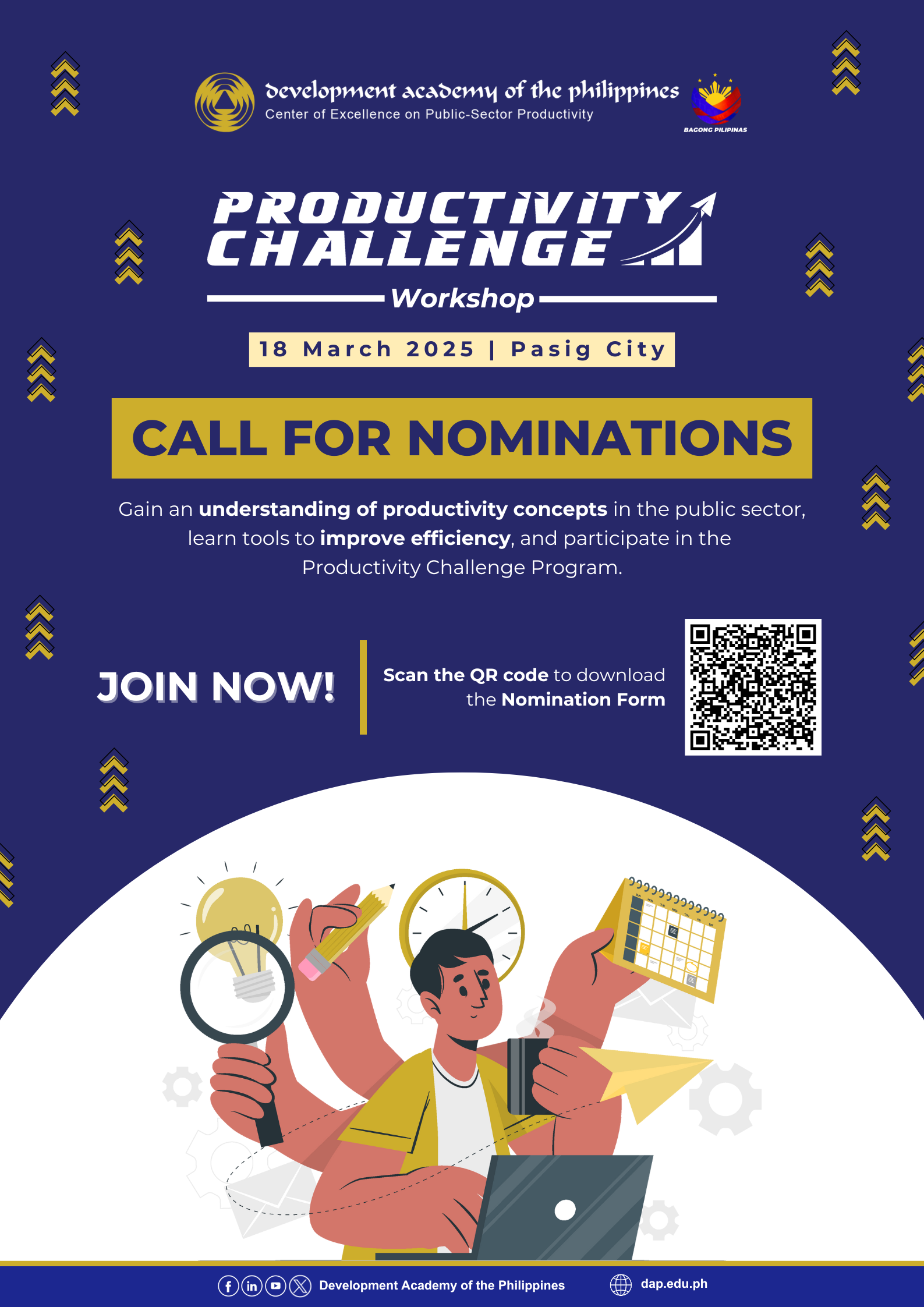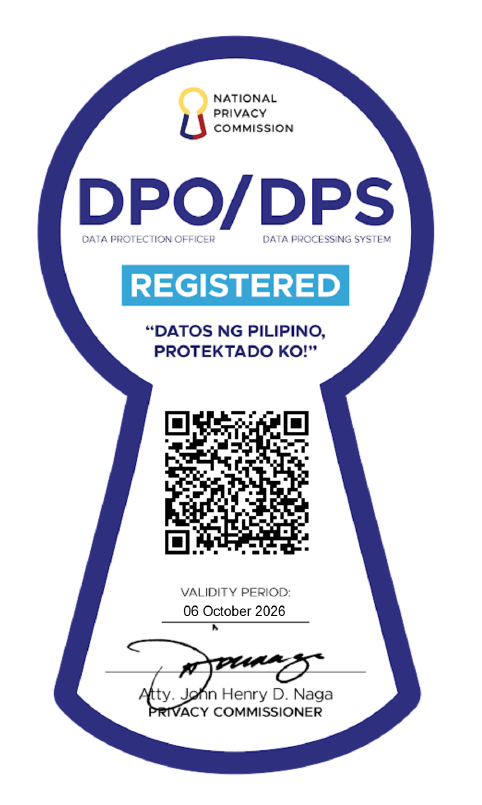The 2024 CBILLS Middle Managers Scholars Class with former DBM Assistant Secretary for Monitoring and Evaluation, Maxine Tanya Hamada at the DAP Conference Center.
Tagaytay City, Philippines—The Development Academy of the Philippines (DAP) has successfully concluded its final legislative course, “Managing the Policy Process” for the Middle Managers Track, under the Capability Building on Innovative Leadership for Legislative Staff (CBILLS) Program. The course, which took place from July 8 to 12, 2024, at the DAP Conference Center, emphasized the critical role of Congress as an oversight in managing the policy process.
Aimed at empowering legislative officers and staff, the course introduced the concept of the theory of change, providing the scholars with an understanding of monitoring and evaluation policies which would help them to identify the essential indicators for assessing a policy or program.
Distinguished speakers enriched the course with their expertise:
- Dr. Eduardo Gonzales, professorial lecturer, and Dr. Jalton Taguibao, associate professor at the University of the Philippines Diliman, provided insights into market failures, government interventions, public policy theories, and the concept of nudging in policy processes.
- Deputy Secretary General Romulo Miral, Jr., from the House Congressional Policy and Budget Research Department, highlighted the role of Congress in policy oversight, particularly in program monitoring and evaluation through budgeting.
- Former DBM Assistant Secretary for Monitoring and Evaluation Maxine Tanya Hamada discussed legislative oversight in current M&E approaches in Philippine policy work and introduced the process of crafting a theory of change for policies.
- Ms. Lea Peralta, program manager of DAP-Productivity Development Center’s Modernizing Government Regulations Program, presented a compelling case study on Regulatory Impact Assessment.
- Director Gemma Gabuya, national program manager of the Pantawid Pamilyang Pilipino Program (4Ps) at the Department of Social Welfare and Development, shared innovative M&E strategies employed by the program.
The course concluded with a mock Congress session, during which scholars presented their proposed policies or amendments. The final requirement was to submit a narrative policy review reflecting their learnings and proposed innovations in the fields of agriculture, education, economics, and labor.
The Legislative Training Courses on management, leadership, and policy development aim to enhance the scholars’ leadership competencies, personal efficacy, and technical skills. This year, the CBILLS program successfully executed eight residential courses from April to July, catering to Emerging Leaders, Middle Managers, and Senior Leaders.
The DAP wraps up this year’s residential training of the CBILLS program, which hopefully will resonate through the enhanced capabilities of the legislative officers and staff through driving innovation and effective policymaking in the Philippine legislative landscape. (Dannieliza Sambrano)





